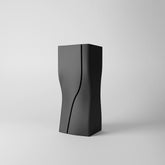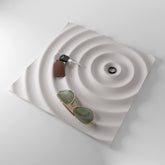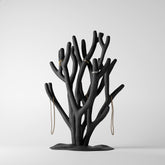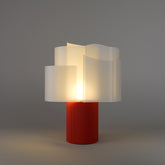Brand Story
Why Layerde?
Because design should do more than just fill a space—it should giveit meaning. In a world where home décor is often mass-produced, overstocked, and imported, Layerde chooses a different path. Every piece we make is made to order or in small batches ensuring exclusivity, eliminating unnecessary waste, and offering a product that feels personal.
We don’t design for the shelves—we design for people. With advanced 3D printing and plant-based materials, we craft refined, sculptural pieces that are both refined and responsible. And with our customization service, each customer has the opportunity to own something truly one-of-a-kind—tailored to their taste, their space, and their story.
You choose Layerde not just for how our products look, but for what it stands for: precision over mass production, presence over excess, and design that doesn’t shout—but is never ignored.
Our Journey
Layerde began with a bold idea—and a leap across continents.
What started in the United States as an experiment in intentional, minimal design quickly found its audience. Customers resonated with our approach: pieces that were thoughtfully made, rooted in purpose, and distinctly different from mass-market décor. But as the brand gained traction abroad, so did a deeper ambition of our founder to bring that vision to build something meaningful at home.
That’s when Layerde truly came to life in India.
As we explored the local market, a clear gap emerged. Much of the home décor available was imported in bulk—leading to overproduction, markdowns, and eventually, waste. Original, design-forward products made locally were rare. We saw an opportunity not just to create, but to contribute—to offer something homegrown, high-quality, and new.
Layerde was founded on the belief that design should be purposeful, production should be responsible, and every object should carry meaning. We launched with small, curated collections, producing only what was needed. We listened, adapted, and grew alongside our customers—always refining our approach.
Today, we are proud to say that every Layerde product is designed and made in India using plant-based materials and advanced 3D printing. While our journey is still unfolding, our commitment remains clear: to thoughtful design, sustainable practices, and products that bring lasting presence for the spaces they are made for.
This is just the beginning—and we’re glad you’re a part of it.
Materials We Use
At Layerde, what we make is just as important as what we make it with.
Our commitment to sustainability starts at the source with materials that are renewable, responsible, and aligned with our values. We primarily work with PLA (Polylactic Acid), a bio-based polymer made from corn starch and sugarcane. Unlike conventional plastics, PLA is biodegradable and compostable under the right conditions, making it a smarter choice for the planet and for your home.
Each product is 3D printed in-house, giving us full control over quality while keeping material waste to a minimum. This precision-led process allows us to create with intention—producing only what’s needed, nothing more. The same care extends to our packaging, which is made from recycled and recyclable materials, designed to be protective, minimal, and low-impact. While PLA is our core material today, we’re continuously researching and testing new bio-based alternatives—materials that offer both performance and a lower environmental footprint. As our collections grow, so will our material palette—but our values won’t change.
As we grow, so will our material palette—but our values will remain the same: responsible sourcing, minimal waste, and design that leaves a lasting impression, not a lasting footprint
Sustainability
Each year, over 400 million tonnes of plastic waste are generated globally. Less than 10% of it is ever recycled. The rest ends up in landfills, oceans, or incinerators—causing long-term harm to ecosystems, wildlife, and human health. One of the quiet contributors to this crisis is the home décor industry. Behind the scenes, millions of products are mass-produced—often overseas, shipped across continents, and stored in bulk. Many never even reach a customer. They’re overstocked, discounted, and ultimately discarded. Functional, well-made products reduced to waste before they’ve even served a purpose.
In India, a large percentage of home décor is still imported. This not only carries a heavy carbon footprint but also creates a supply chain disconnected from actual demand. With little control over how much is produced versus how much is needed, excess inventory becomes inevitable. Materials with the potential to last decades end up unused, unwanted, and wasted.
Worse still, in this cycle of overproduction, individuality is lost. Stores are filled with the same generic designs, mass-replicated and stripped of meaning. Products that should reflect personal spaces become temporary trends—easy to forget, easier to replace. If this trajectory continues, plastic waste in landfills is expected to triple by 2050, with devastating consequences for food systems, water security, and public health.
- Choosing a selection results in a full page refresh.











